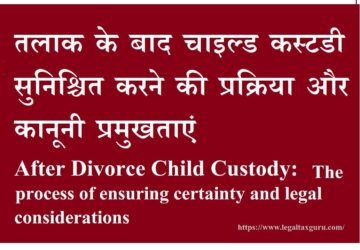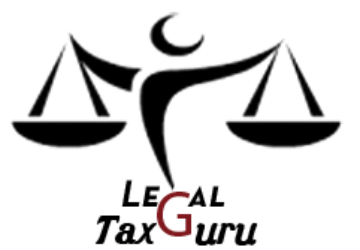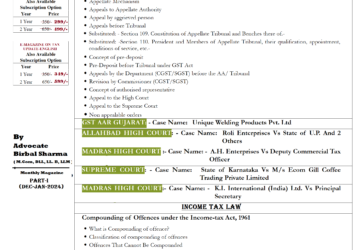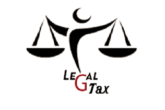Composite Supply and Mixed Supply under GST
Introduction- The taxable event under Goods and Service Tax (GST) is “supply of goods or services or both”. Goods and Service Tax will be payable on every supply of goods or services or both unless otherwise exempted. The rates at which Goods and Service Tax (GST) is payable for individual goods or services or both is also separately notified.
Classification of any supply (whether as goods or services, the category of goods or services) is essential to determine the applicable rate of GST on the particular supply. The application of rates will pose no problem if the supply is of individual services or goods which is clearly identifiable and the goods or services are subject to a particular rate of GST.
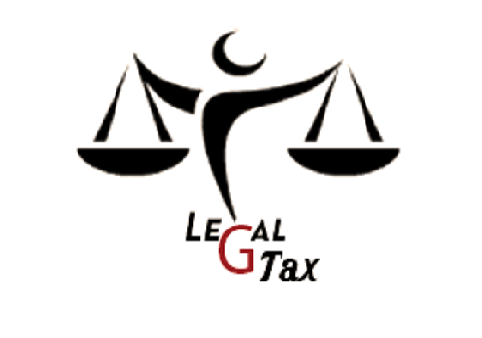
But not all supplies will be such simple and clearly identifiable supplies of goods or services. Some of the supplies will be a combination of goods or services or combination of goods and services both.
Each individual component in a given supply may attract different GST rate. The determination of rate of tax to be levied on such supplies may pose a problem and would depend upon the classification of such supplies. It is for this reason, that the GST (CGST+SGST) Law identifies composite supplies and mixed supplies and provides certainty in respect of tax treatment under GST (Goods and Service Tax) for such supplies.
Also Subscribe GST Magazine
Composite Supply under GST
Under Goods and Service Tax, a composite supply would mean a supply made by a taxable person to a recipient consisting of two or more taxable supplies of goods or services or both, or any combination there of, which are naturally bundled and supplied in conjunction with each other in the ordinary course of business, one of which is a principal supply;
Example-1:-Where goods are packed and transported with insurance, the supply of goods with packing materials, and transport, insurance of goods is a composite supply and supply of goods is a principal supply.
Example 2:- A works contracts Services and restaurant services are classic and good examples of composite supplies, however the GST (CGST+SGST) Act identifies both as supply of services and chargeable to specific rate of GST mentioned against each of such services (works contract or restaurant).
In respect of composite supplies (other than the two categories (Example-1, Example-2) mentioned above), the need to determine the supply as a composite one, will arise, so as to determine the appropriate classification of such supply as a supply of goods or supply of services as also the appropriate rate of GST. It will be necessary to determine as to whether a particular supply(Goods and Service ) is naturally bundled in the ordinary course of business and what constitutes principal supply in such composite supplies.
The concept of composite supply under GST is identical to the concept of naturally bundled services prevailing in the erst while service tax regime. This concept has been explained in the Education Guide issued by Central Board of Indirect Taxes and Customs in the year 2012 as under
“Bundled service’ means a bundle of provision of various services provide where in an element of provision of one service is combined with an element or elements of provision of any other service or services.
Example:-An example of ‘bundled service’ would be (air) transport services provided by any airlines wherein an element of transportation of passenger by air is combined with an element of provision of catering (with food and other services) service on board. Each service involves differential treatment as a manner of determination of value of 2 services for the purpose of charging service (GST) tax is different.”
The rule for bundled – ‘If various elements of a bundled service are naturally bundled in the ordinary course of business, it shall be treated as provision of a single service which gives such bundle its essential character’
Example-1 • A hotel provides a 4-Day/3-Night package with the facility of breakfast and lunch. This is a natural services bundling in the ordinary course of business. The service of accommodation by hotel a gives the bundle the essential character and would, therefore, be treated as service of providing accommodation by hotel.
Example -2:- A 5 Star hotel is booked for a conference of 200 delegates on a lump sum package with the following facilities:
Also Read
– Accommodation for the delegates
– Breakfast and lunch for the delegates,
– Tea or coffee during conference
– Access to fitness room for the delegates
– Availability of conference room for the delegates
– Business centre for the delegates
Mixed Supply under GST,
Under Goods and Service Tax a mixed supply means 2 or more individual supplies of goods or services, or any combination thereof, made in conjunction with each other by a GST taxable person for a single price where such supply does not constitute a composite supply.
Example:- A supply of a package consisting of canned foods, sweets or chocolates, cakes, dry fruits, soft drinks and fruit juices when supplied for a single price is a mixed supply. Each of these items (canned foods, sweets or chocolates, cakes, dry fruits etc) can be supplied separately and is not dependent on any other. It shall not be a mixed supply of any goods or service if these items are supplied separately. In order to identify if the particular supply is a called Mixed Supply, the first requisite is to rule out that the supply is a composite supply. any supply can be a mixed supply only if it is not a (CS) composite supply. As a corollary it can be said that if the transaction consists of supplies not naturally bundled in the ordinary course of business then it would be a (MS)Mixed Supply. Once the amenability of the transaction as a composite supply is ruled out, it would be a mixed supply, classified in terms of a supply of services or goods attracting highest rate of GST.
The following Example given in the Education Guide of CBIC (Central Board of Indirect taxes and Customs) referred to above can be a pointer towards a mixed supply of services:
“A house/Flat is given on rent same part of which is to be used as residence and the other part of house a printing press. Such renting for 2 two different purposes (housing and business) is not naturally bundled in the ordinary course of business. Therefore, if a single rent agreement is executed it will be treated as a service comprising entirely of such service which attracts highest liability of service tax. In this case house is renting for use as residence/ is a negative list service while renting for non-residence use is chargeable to tax. Since the latter category attracts highest rate (liability) of service tax amongst the (two) 2 services bundled together, the entire bundle would be treated as renting of commercial property(non-residence use).”
Determination of tax liability of Composite and Mixed Supplies The (GST) tax liability on a composite or a mixed supply shall be determined in the following manner, namely:
(a) A composite supply comprising (two) 2 or more supplies, one of which is a principal supply, shall be treated as a supply of such principal supply; and
(b) A mixed supply comprising (two) 2 or more supplies shall be treated as a supply of that particular supply which attracts the highest rate of (GST) tax.
Clarification given vide Circular No. 32/6/2018-GST dated 12.02.2018
Food supplied to the patients: Food supplied to the in-patients as advised by the doctor/nutritionists is a part of composite supply of health care and not separately taxable. Other supplies of food by a hospital to patients (not admitted) or their attendants or visitors are taxable(GST).
Clarification given vide Circular No. 34/8/2018-GST dated 01.03.2018
Whether activity of bus body building, is a supply (composite supply and mixed supply)of goods or services?
In the case of bus body building there is supply of goods and services (labour). Thus, above classification of this composite supply, as goods or service would depend on which supply is the principal supply of goods or service which may be determined on the basis of circumstances and facts of each case.
Clarification given vide Circular No. 47/21/2018-GST dated 08.06.2018
How is servicing of cars involving both supply of goods ( with spare parts) and services ( with labour), where the value of goods and services are shown separately, to be treated under (Goods and Service Tax) GST?
The taxability of supply would have to be determined on a case to case basis looking at the circumstances and facts of each case. Where a supply involves supply of both goods ( with spare parts) and services ( with labour), and the value of such goods and services supplied are shown separately, the goods and services would be liable to t GST at the rates as applicable to such goods and services separately.
(If you liked the Article, please Subscribe )
[email-subscribers namefield=”YES” desc=”” group=”Public”]
